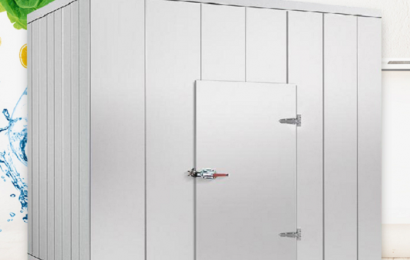
Professional office cleaning – peniel cleaning reveals more about Singapore’s social stratification than any government report or academic study ever could, laying bare the profound disparities that exist between those who work in air-conditioned comfort and those who maintain the very spaces that enable such privilege. In the predawn hours, when the city’s financial district stands eerily quiet, an invisible army of cleaners transforms these corporate sanctuaries, ensuring that by 8 AM, every surface gleams with the promise of productivity and success.
The Invisible Architecture of Inequality
Walk through any of Singapore’s premium office towers at 5 AM, and you’ll witness a choreography of labour that most office workers will never see. The Ministry of Manpower’s 2024 Labour Force Survey revealed that over 180,000 people work in cleaning and maintenance roles across the island nation, yet their contributions remain largely invisible to the very people whose work they enable.
Key invisibility factors include:
• Cleaners arrive before dawn and return after dusk
• Work schedules deliberately avoid overlap with regular business hours
• Separate entrances and facilities maintain social distancing
• Systematic training to remain unnoticed during work
The Economics of Cleanliness
Singapore’s commercial cleaning industry generated S$2.1 billion in revenue in 2023, according to the Department of Statistics. Yet this prosperity doesn’t trickle down to the workers who actually wield the mops and vacuum cleaners.
The wage disparities reveal stark truths:
• Entry-level office workers earn approximately 3.5 times more than cleaning staff
• Executive assistants typically earn more in a week than cleaners earn in a month
• Professional workplace sanitation services employ predominantly foreign workers earning median wages of S$1,400 per month
• The cost of professional cleaning services represents less than 0.3% of most corporations’ operational budgets
The Dignity Deficit
Corporate office hygiene services operate within systems designed to minimise human interaction between cleaners and office workers. One cleaner, speaking anonymously, described the experience: “We know every corner of these offices better than the people who work there, but we’re trained to be invisible. If someone sees us, we’re supposed to step aside, look down, not make eye contact. It’s like we’re ghosts keeping their world perfect.”
Systematic invisibility mechanisms:
• Elevators programmed with different access levels
• Separate dining areas and break facilities
• Protocols requiring cleaners to yield space to office workers
• Uniforms designed to signal service rather than professionalism
The Health Paradox
Singapore’s tropical climate creates unique challenges for maintaining hygienic office environments. The National Environment Agency reported that poorly maintained commercial spaces can harbour thousands of bacterial species.
Health impacts reveal class-based disparities:
• Cleaners face higher exposure to chemical cleaning agents and allergens
• Office workers benefit from improved air quality without bearing the health costs
• Professional cleaning reduces sick leave for office workers by 23%, but cleaners themselves lack adequate healthcare coverage
• Advanced facility maintenance solutions often increase health risks for cleaning staff
The Technology of Displacement
Singapore’s embrace of smart building technologies has transformed commercial cleaning, but not necessarily in ways that benefit the workers themselves. IoT sensors and automated systems now monitor cleanliness levels, creating new forms of surveillance and performance pressure for cleaning staff.
Technology’s impact on workers:
• Smart scheduling systems increase individual workloads by up to 40%
• Automated monitoring creates additional performance pressure
• Professional building maintenance services prioritise efficiency over worker welfare
• Digital systems enable more precise measurement of cleaning output
The Sustainability Illusion
Singapore’s Green Plan 2030 emphasises environmental responsibility, and many corporations proudly tout their use of eco-friendly cleaning products. However, this environmental consciousness often masks deeper social irresponsibilities.
The green cleaning paradox includes:
• Eco-friendly products often require more labour-intensive application techniques
• Sustainable cleaning practices can increase physical demands on workers
• Corporate sustainability reports rarely mention labour conditions in their supply chains
• Environmental benefits primarily accrue to office workers rather than cleaning staff
The COVID-19 Revelation
The pandemic briefly illuminated the essential nature of cleaning work. Suddenly, office sanitation services became visible as “essential workers” whose labour was crucial for maintaining business operations. The government’s enhanced cleaning protocols increased demand for professional services, but wage improvements remained minimal.
This moment of recognition proved fleeting. As offices reopened and pandemic anxiety subsided, cleaning work returned to its usual invisibility, despite the ongoing importance of maintaining hygienic environments.
Beyond the Surface
Singapore’s gleaming office towers represent more than architectural achievement—they embody a social contract that depends on the systematic invisibility of essential labour. The pristine surfaces that define corporate success exist because thousands of workers labour in conditions designed to maintain both physical cleanliness and social distance.
Professional commercial cleaning services operate within these constraints, providing essential services whilst perpetuating systems that marginalise the very workers who make corporate success possible. The challenge isn’t merely improving working conditions—it’s recognising that our economic prosperity depends on forms of labour we’ve made invisible.
Understanding this hidden architecture of inequality is crucial for anyone seeking to comprehend how modern Singapore actually functions. The next time you enter a spotless office building, remember that this cleanliness represents not just professional standards, but the organised invisibility of essential human labour—a reminder that professional office cleaning – peniel cleaning exposes the profound inequalities that underpin our seemingly pristine corporate landscape.














